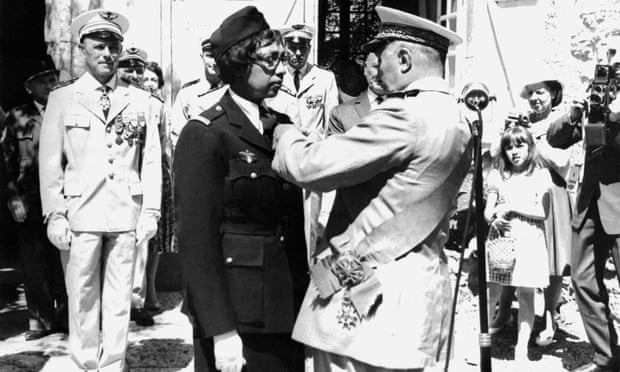The remains of Josephine Baker, a famed French-American dancer, singer and actor who also worked with the French resistance during the second world war, will be moved to the Panthéon mausoleum in November, according to an aide to President Emmanuel Macron.
It will make Baker, who was born in Missouri in 1906 and buried in Monaco in 1975, the first Black woman to be laid to rest in the hallowed Parisian monument.
A group campaigning for her induction, which included one of Baker’s sons, met Macron on 21 July, Jennifer Guesdon, one of the members, said. “When the president said yes, [it was a] great joy,” she said.
“Panthéonisation is built over a long period of time,” an aide to Macron said.
The Baker family have been requesting her induction since 2013, with a petition gathering about 38,000 signatures.
“She was an artist, the first Black international star, a muse of the cubists, a resistance fighter during the second world war in the French army, active alongside Martin Luther King in the civil rights fight,” the petition says.
Another member of the campaign group, Pascal Bruckner, said Baker “is a symbol of a France that is not racist, contrary to what some media groups say”, as well as “a true anti-fascist”.
The ceremony will take place on 30 November, the date Baker married Jean Lion, a Frenchman, allowing her to get French nationality.
The Panthéon is a memorial complex for great national figures in French history from the world of politics, culture and science.
Only the president can choose to move remains to the former church in Paris, whose grand columns and domed roof were inspired by the Pantheon in Rome.
Of the 80 figures in the Panthéon, only five are women, including the last inductee in 2018, Simone Veil, a former French minister who survived the Holocaust and fought for abortion rights.

